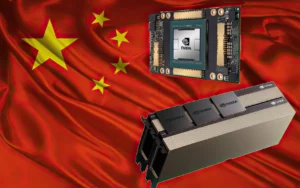In a remarkable stride towards revolutionizing the world of computing, semiconductor giant Intel has made a monumental announcement regarding the development of a 12-qubit quantum-dot silicon chip. This innovation is a significant step towards the eventual realization of mass-produced quantum computers, the holy grail of computational power and problem-solving.
“The vision in the future when there is a commercial product, somehow you will need millions of qubits and you will need to make a lot of them look like a central processing unit (CPU),”
~ Intel’s senior device engineer Ravi Pillarisetty told The Standard.
Quantum computers are poised to redefine the boundaries of computational capabilities. Quantum computers can solve complex problems rapidly, leveraging quantum mechanics’ fundamental principles for data processing. Their power surpasses conventional computers.
The Potential Applications of Quantum Computing
The potential applications of quantum computing are vast and groundbreaking. This encompasses designing materials, discovering medicines, modeling climate impacts, improving AI, and breaking robust security systems.The transformative potential of quantum computing is awe-inspiring.
Follow us on Linkedin for everything around Semiconductors & AI
Intel’s Vision: A Paradigm Shift in Quantum Computing
Intel is striving to establish a new approach to building quantum computers. They support using traditional computing methods crucial in 20th-century mainframe and personal computer development. This approach prioritizes scalability, usability, and integration with existing computational paradigms.
Intel’s Tunnel Falls chip signals a call for collaboration among universities and researchers to use this standardized chip for testing and building compatible software and hardware, leveraging silicon quantum dots for scalable qubit technology in practical quantum computing.
Intel urges universities and researchers to use their Tunnel Falls chip for testing and building compatible software and hardware, rather than developing their own quantum processors.
Understanding Quantum Computing: Qubits vs. Bits
In classical computing, binary digits (bits) are used to represent information, denoting either 0 or 1. Quantum computing, on the other hand, utilizes quantum bits (qubits), which leverage the unique scientific properties of sub-atomic particles. These particles can exist in a state of superposition, allowing for simultaneous representation of both 0 and 1. This property of superposition is fundamental to the speed and efficiency of quantum computations.
Overcoming the Wiring Challenge
One of the primary hurdles in quantum computing is the extensive wiring required to maintain the qubits at extremely low temperatures. Intel aims to address this issue by minimizing the number of external connections, with their Tunnel Falls 12-qubit quantum dot silicon chip boasting a mere 62 pins. This reduction in external wiring is pivotal for future scalability and integration into commercial quantum computing solutions.
Intel is looking beyond the mere numbers game of qubit count and focusing on a long-term vision. Intel envisions a future with millions of qubits, aiming to simplify wiring and connectivity using proven CPU-processing methods and design principles.
IBM currently provides superconducting processors equipped with hundreds of qubits, yet Mr. Pillarisetty emphasizes that their focus isn’t merely on increasing qubit counts through brute force scaling. Instead, they are prioritizing a long-term vision, recognizing that achieving meaningful applications will ultimately require millions of qubits.
Experts from The Standard find Intel’s announcement significant for the sub-category of silicon spin quantum dots. However, uncertainty remains about the winning technology and the eventual appearance of quantum computers.
Conclusion: The Quantum Revolution Begins
Intel’s recent announcement is a significant milestone in the evolution of quantum computing technology. The unveiling of the 12-qubit quantum-dot silicon chip marks a pivotal step towards realizing the dream of mass-produced quantum computers. The quantum industry is advancing rapidly, sparking a competitive surge among diverse technologies. The future of quantum computing holds revolutionary potential. It’s set to drive innovation and discovery across numerous fields, an eagerly anticipated quantum revolution.




